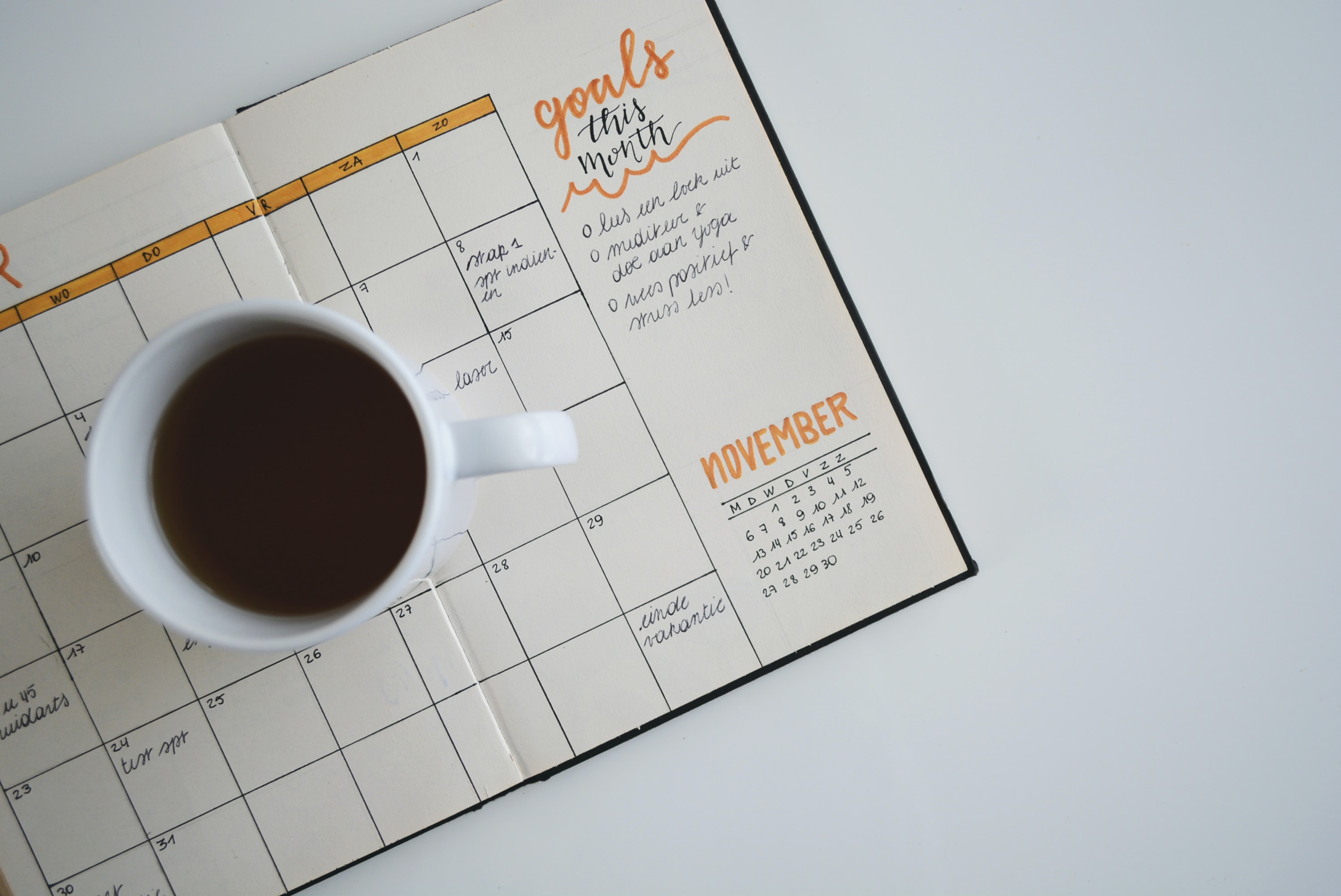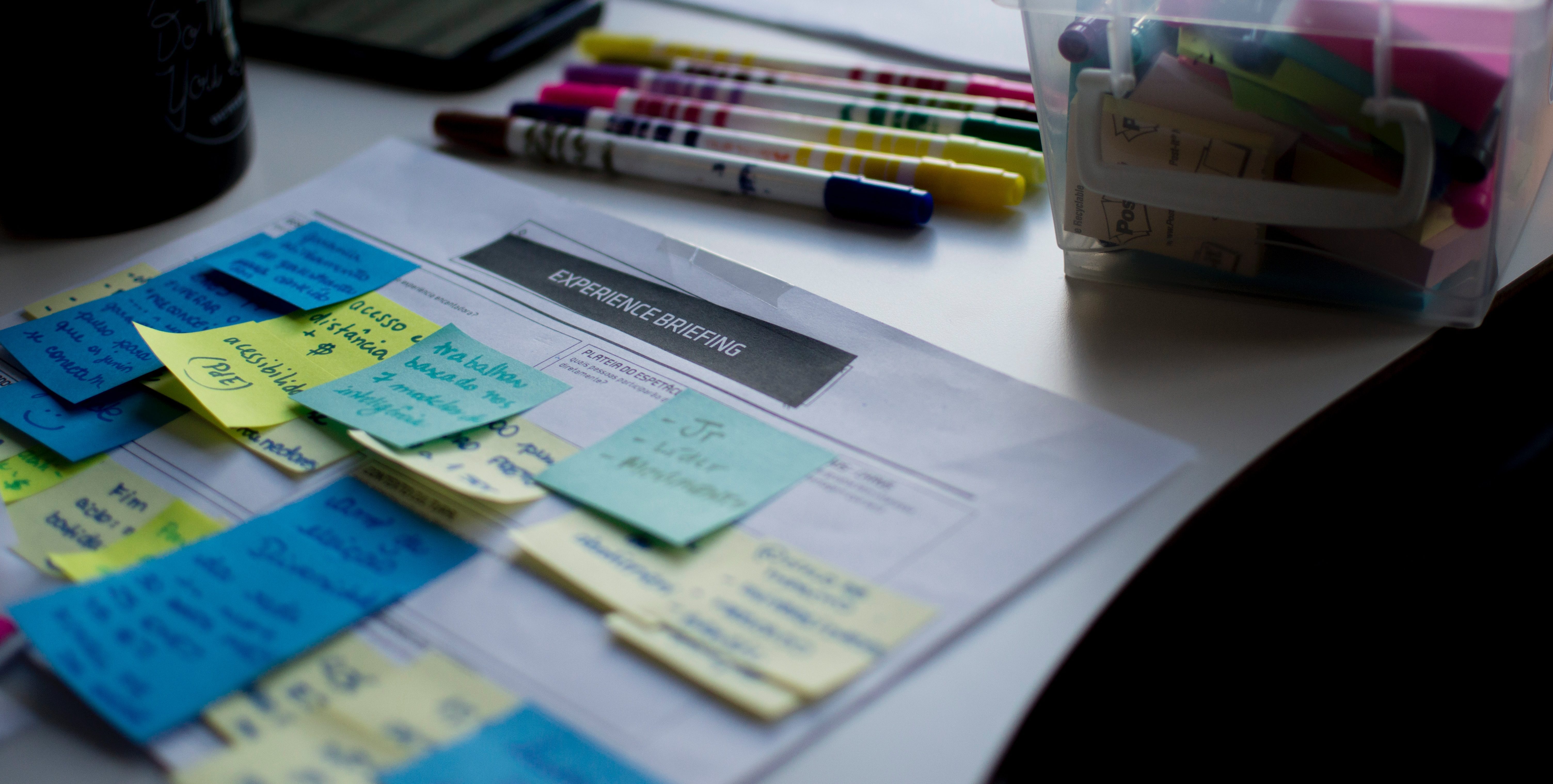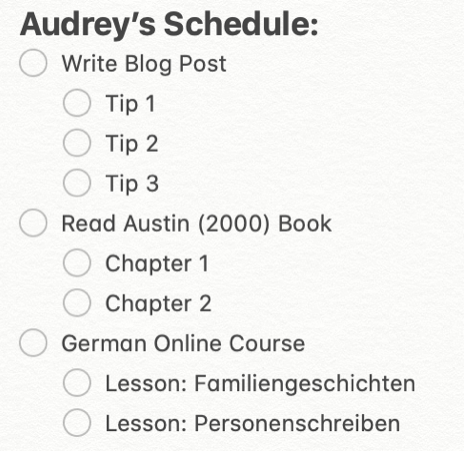Post-Semester Schedules & Assessments: How to Work on Your Dissertation?

By Audrey, MSc Environmental Sustainability

Photo by Felipe Furtado on Unsplash
It’s the start of the third semester: a couple of days have passed since you submitted your last assessment, and your supervisor has contacted you for a first official meeting. The pressure is building to seriously start working on your dissertation, but you have no idea where to start or how to organise your work.
Don’t worry, most postgraduates are feeling exactly the same! Personally, I wasn’t sure how to structure my days or go about working on one project until August, especially given the current situation. So, after doing some research and asking some classmates for their tips, I adopted the strategies below! Have a read, and see if these help you! Or, are you already doing some of these? Do you have your own techniques? Share them in the comments!
Tip 1: Set small, realistic, manageable tasks
A great way to structure your work and your day is to set daily or weekly goals. I write a to-do list either the night before, or first thing in the morning. Make sure the goals are realistic and manageable! I’ve found that having several smaller, more specific, goals is more motivating because I can tick them off sooner. For example, instead of having a goal like ‘Read about Sustainable Livelihoods’, or ‘Do 3 Readings’, try splitting the goal into sub-goals, like ‘Reading 1, Reading 2, Reading 3’. This makes the tasks less daunting and more manageable, and gives you a sense of achievement each time you tick it off.
Tip 2: Task variety
Something that has been very important to keep me excited about working on my dissertation is to have varied tasks! Having only one topic to study and read about the whole day can be demotivating. Admittedly, this is necessary sometimes, but in the early stages of dissertation research there are many open doors! So, why not try researching two different aspects of your dissertation topic in one day? I’ve found this helps me get a psychological distance from denser, heavier concepts, while also allowing me to connect the dots between different dissertation sections. Also, add in some non-dissertation related tasks! Why not try starting a completely unrelated online course (I’ve taken up German!), or add in something creative & fun (cooking and creative writing have been high on my list)?


Trying out some new recipes! Lesson learnt: chopping vegetables post-dissertation work can be therapeutic.
Tip 3: Plan ahead
The days I feel most motivated and focused are consistently those that I have planned ahead. By this I mean setting goals and gathering the resources and articles I will need to read the night before! This has made actually starting work in the mornings much easier and more manageable.
Tip 4: Set working hours
Just like you would in a normal job, try planning a working day or working hours. It is very easy to get stuck in the ‘I can probably do just a bit more’ mindset, especially if you feel that you haven’t been productive earlier in the day, and all of a sudden it’s 10 pm and you’re still working. This isn’t productive long-term, as you could exhaust yourself well before the actual writing of the dissertation. Setting clear working hours, (personally, I try to follow a 9am-12pm and 2pm-6pm schedule), with room for breaks, will help keep up your momentum and set clear personal boundaries. It will also make working more manageable: there are fixed daily end points.
Tip 5: Regular check-ins with your supervisor
From personal experience, fortnightly meetings, or having deadlines for my supervisor, have been key to keeping my working momentum and inspiration. These regular check-ins add structure, and a sense of accountability to complete work. Having meetings in particular is great if you have a crisis of confidence in your topic, or get confused about theories, since you can talk through ideas and ask for your supervisor’s opinion.

Taking a break: going for a run to clear my head!
Tip 6: Listen to your mind & body
We’re not machines; we’re human. It is completely normal if some days we’re not as productive, able to focus, or things just don’t seem to be going into our brains. Do not beat yourself up over it; instead try doing easier tasks, go for a walk, do something you like, or just take a break for the day. Our brains should be treated like muscles: they need to be trained, but also need rest to stay productive. If taking a one or few days break is what you need to recalibrate and re-motivate yourself, go right ahead!
Tip 7: Rewards
Something that has always worked for me is to give myself rewards for a hard day’s work! Having something to look forward to at the end of the day, or even after completing each goal, keeps motivation and spirits high. The rewards are completely personal, choose what works best for you! For me, watching an episode of my favourite TV show, going for walks or runs while listening to cheesy show-tunes, doing some yoga, or having cookies and desserts have been great motivators.
Tip 8: Keep in touch
Finally, staying in touch with course mates and friends is important. Many, if not all, are struggling with working under the high-stress context. Check-in with one another, schedule calls, and share tips on how to make sure each day is manageable. Our class, thanks to the initiative of some amazing students, are organising weekly online pub quizzes! A good 20 of us join each time, and it really helps to have something to look forward to during the week. When you have these online events, why not treat it as a real-life outing? Put a nice outfit on, some makeup, get a drink ready, and you’re all set! With a great group of friends and a banterful quiz team, it’s almost as good as the real thing.
Audrey, MSc Environmental Sustainability
Follow us on Instagram or Twitter for more updates from our Geosciences students!



